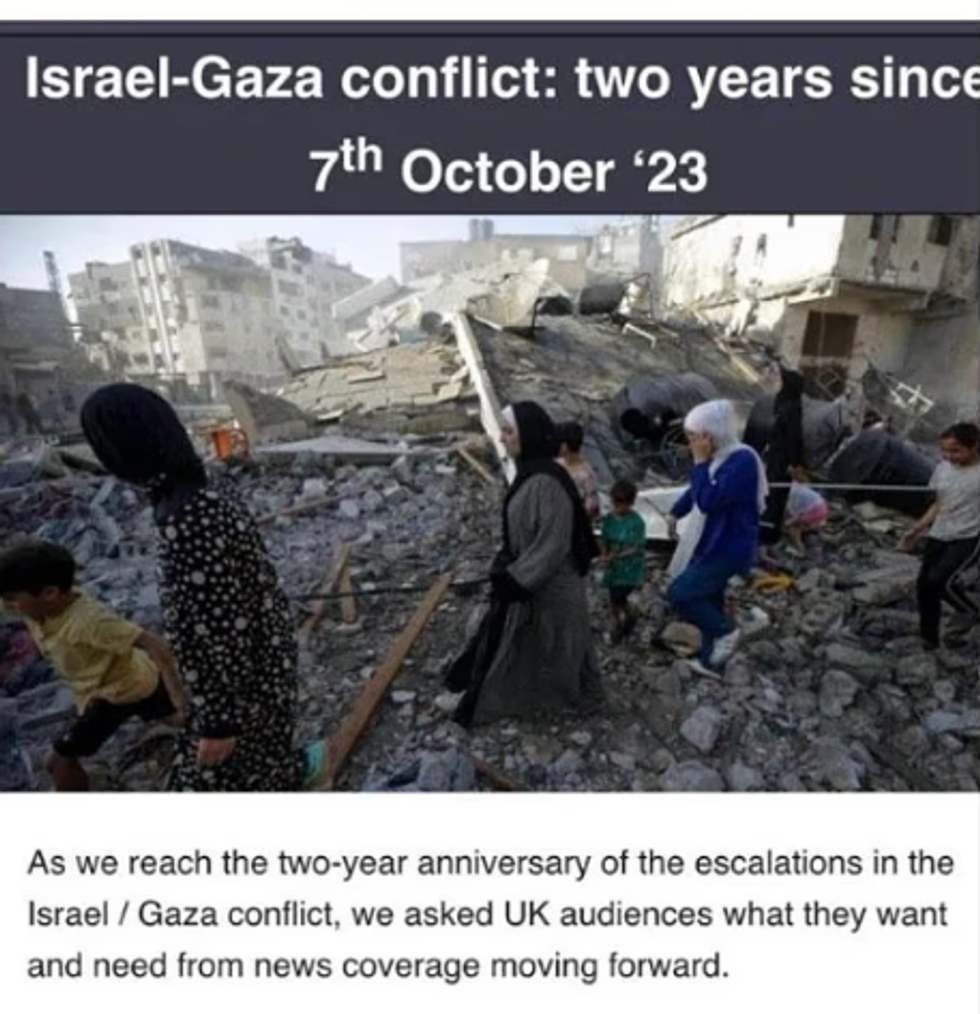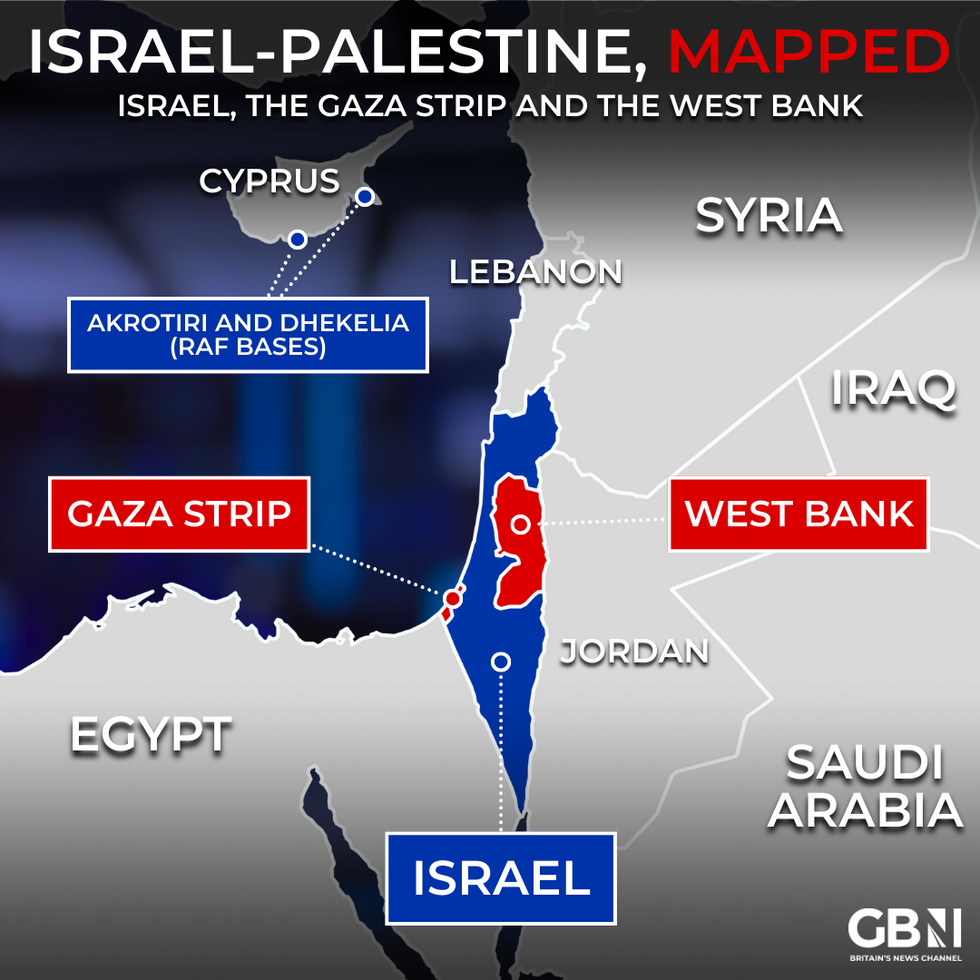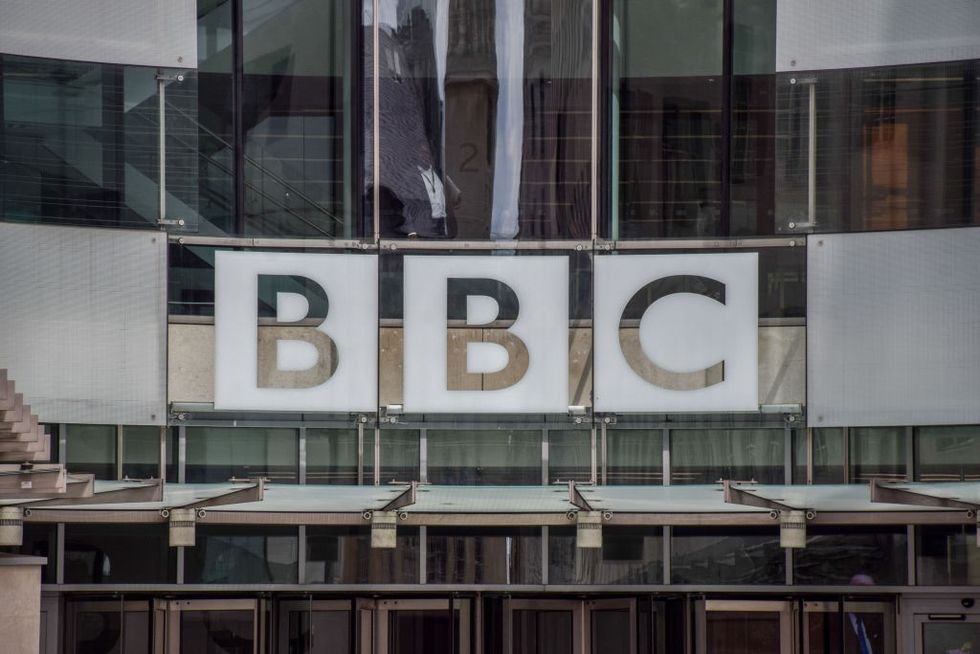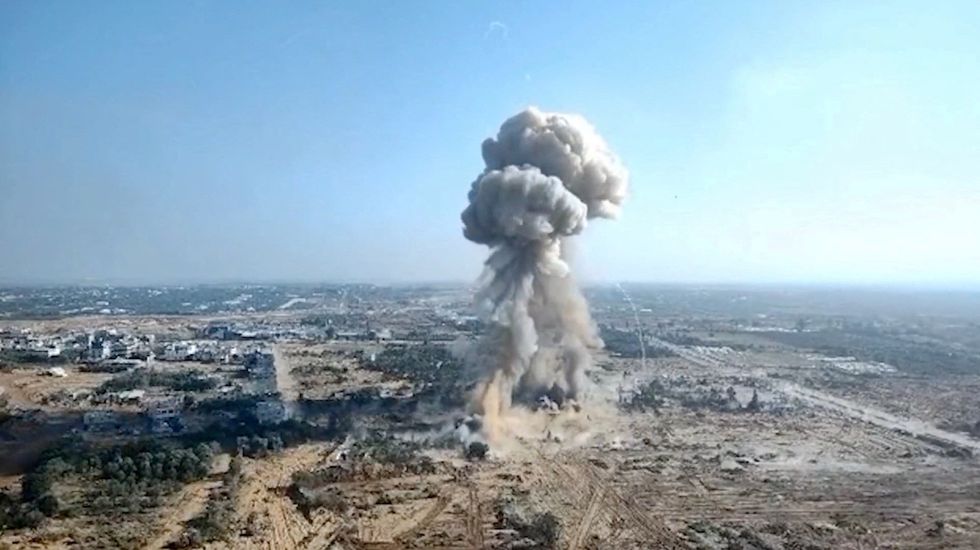



The BBC has apologised for referring to the October 7 massacre as "escalations".
The internal email, which used a picture of Palestinian women and children surrounded by rubble in Gaza rather than Israeli victims, was sent to BBC News staff days before the second anniversary of the attacks.
It was sent as an update by the BBC Audiences team to advise journalists and producers on how to tailor content to their audience effectively.
The email read: “As we reach the two-year anniversary of the escalations in the Israel-Gaza conflict, we asked UK audiences what they want and need from news coverage moving forward.”
Several staff members complained about the wording and picture choice, fuelling further allegations of anti-Israel bias within the organisation.
The national broadcaster apologised, with a spokesman saying: "This internal staff email should have been worded differently and we’re sorry for any offence caused. We are editing it and will replace the text on our intranet."
Robert Jenrick, the Shadow Justice Secretary, said: "This is the latest shocking example of the bias within the BBC. When will they learn?”
Richard Tice, the deputy leader of Reform UK, accused the BBC of appearing "to be trying to deny the Oct 7 massacre” and of "rampant antisemitism".

The BBC has apologised for referring to the October 7 massacre as 'escalations'
|BBC EMAIL
The email contained a link to a longer piece that referred to the attacks, which read: “On October 7th, 2023, the conflict between Palestine and Israel reached a new escalation when Hamas attacked southern Israel, killing 1,200 and taking over 200 hostages.
"In response, Israel launched a prolonged military campaign in Gaza, resulting in widespread destruction and a humanitarian crisis.
"Over the following months, ceasefire efforts stalled, global pressure intensified, and civilian casualties continued to rise, sparking worldwide protests and diplomatic tensions.
"In September 2025, the UK Government announced its formal recognition of the state of Palestine, shortly before the two-year anniversary of the Hamas attack.
"This moment presents both a challenge and an opportunity for BBC journalists in how they cover the conflict for our audiences."
The BBC has faced repeated accusations of anti-Israel bias since the attacks.
GB News has explored four more times that the BBC has apologised over Gaza coverage.
 MAPPED: Israel and the Palestinian territories | GB NEWS
MAPPED: Israel and the Palestinian territories | GB NEWS
The BBC has apologised and admitted "serious flaws" in the making of a documentary about children's lives in Gaza.
"There have been continuing questions raised about the programme, and in the light of these, we are conducting further due diligence with the production company."
They confirmed that the programme will not be available on iPlayer during the investigation.
The BBC said: "Since the transmission of our documentary on Gaza, the BBC has become aware of the family connections of the film’s narrator, a child called Abdullah.
"We’ve promised our audiences the highest standards of transparency, so it is only right that, as a result of this new information, we add some more detail to the film before its retransmission.
"We apologise for the omission of that detail from the original film."

The BBC have issued multiple apologies over their coverage
| GETTY/BBCThe BBC issued a formal acknowledgement of editorial failings in its coverage of an explosion at Al Ahli Hospital during the Israel-Gaza conflict.
During a programme on October 17, Jerusalem correspondent Jon Donnison suggested the hospital explosion was likely caused by Israeli military action.
Speaking shortly after 8pm, he said: "It's hard to see what else this could be, really, given the size of the explosion, other than an Israeli airstrike or several airstrikes."
The Editorial Complaints Unit determined this speculation breached BBC standards for accuracy.
The broadcaster posted a correction and apologised two days later, acknowledging the corporation should not have speculated about the blast's cause when reliable information remained unavailable.
 Hamas began their attacks on Israel on October 7, 2023 | Reuters
Hamas began their attacks on Israel on October 7, 2023 | Reuters
The BBC issued an apology following a significant broadcasting error concerning Israeli military operations at Gaza's Shifa Hospital.
A presenter incorrectly said that Israel Defence Forces personnel "were targeting people including medical teams and Arab speakers" during their entry into the facility.
The broadcaster repeated this claim twice whilst citing a Reuters report.
However, the actual Reuters article conveyed entirely different information, stating that specially trained IDF units were accompanied by medical personnel and Arabic-speaking soldiers to assist with humanitarian needs.
The corporation subsequently broadcast a correction acknowledging its mistake.
An anchor stated during the apology: "This was incorrect and misquoted a Reuters report. What we should have said is that IDF forces included medical staff and Arabic speakers for this operation."
In their statement, the BBC said: "We apologise for this error which fell below our usual editorial standards. The correct version of events was broadcast minutes later."
The BBC has acknowledged errors in its coverage of casualties during the Gaza conflict, specifically regarding a broadcast that incorrectly characterised all deaths as civilian fatalities.
During a News at 10 segment on January 14, which focused on a Tel Aviv vigil commemorating 100 days since the October 7 attacks on Israel, correspondent Wyre Davies stated that "very nearly 24,000" civilians had died in Gaza.
This figure, attributed to the Hamas-run health ministry, failed to distinguish between civilian deaths and those of Hamas combatants.
The broadcaster's editorial complaints unit investigated the matter after receiving a viewer complaint about the report's accuracy.
Following their review, they determined that the broadcast had not met the corporation's editorial standards.
The unit concluded that the segment "fell below the BBC's standards of accuracy" by presenting the death toll without clarifying that it encompassed both civilian casualties and Hamas militants.
